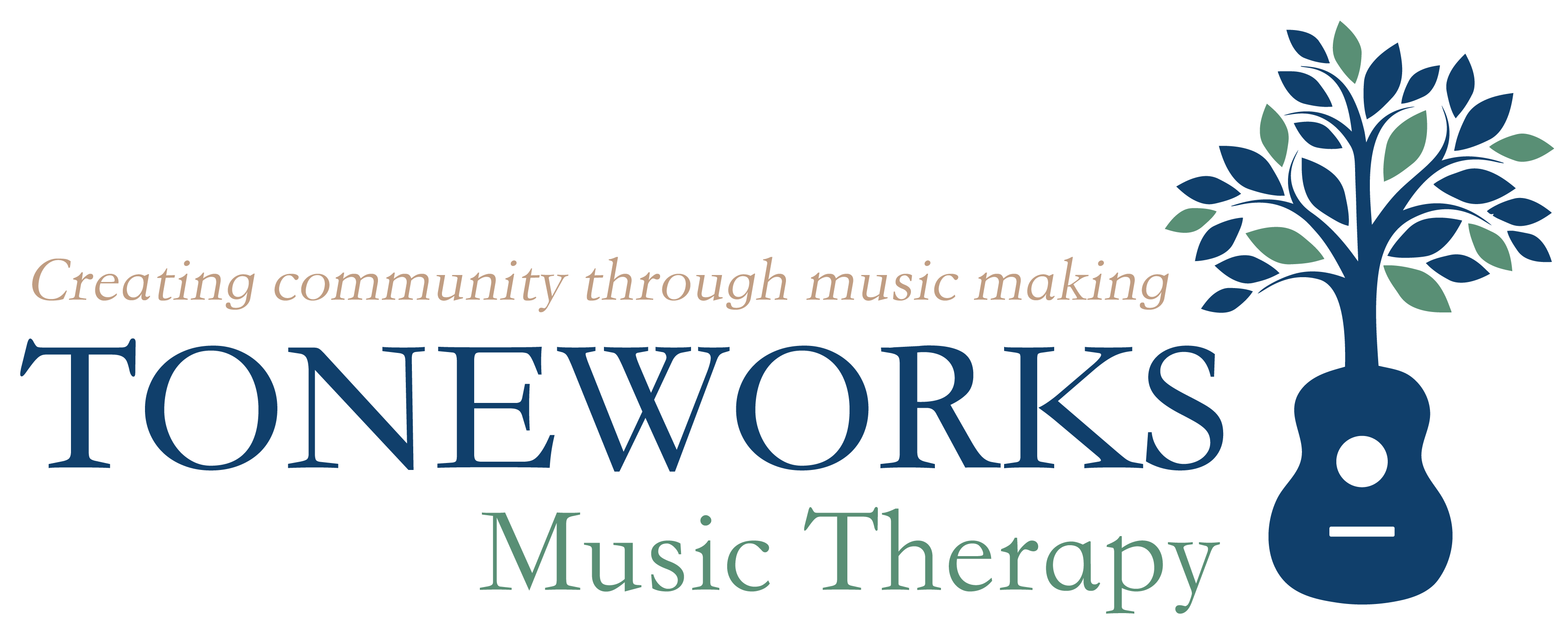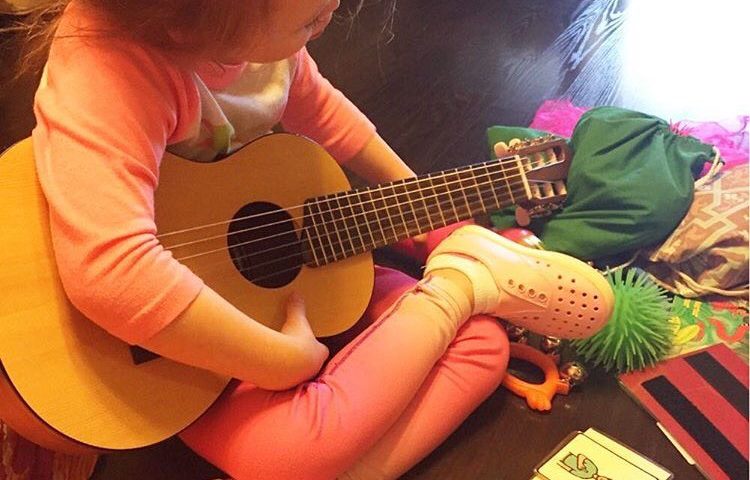Special Post: Music Therapy–Kilia’s Miracle

Celebrating World Down Syndrome Day

Summer Classes with Toneworks Creative Arts
Written by Ruth Ann Lang, Toneworks Client Services Coordinator
June 29th 2013. I left a message for a woman about music therapy for my daughter. I had seen her at the Down Syndrome support group in my area and I thought, “Hey, why not try?” At the time my daughter was non-verbal and she had been in speech and feeding therapy since she was 24 hours old. She had been tube fed, graduated to thickened feeds, aspirated for 18 months, was still not on thin liquids, and she could not tell me that she loved me. I was at a loss, depressed, and uncertain. Feeling like a failure as a mom. I had a child with autism, a child with SPD and EDS, and then I had Kilia. She had Down Syndrome, speech apraxia, choanal atresia, celiac disease, severe cognitive delays, she had only learned to walk in February and was still so unsteady. What was music therapy and what hope could it offer? Why in the world was I reaching out to this stranger?
July 10th 2013. Our first day of music therapy. My 3 children has been in OT, PT, and speech for 6 years already. My dreams of being a soccer mom quickly shifted to the reality of being a therapy mom. I carted them to therapy, ran to specialized preschool, popped in at church, fed them lunch, and then right back to their various therapies again. I was not a stay at home mom. I was a driving to every therapy under the sun mom. But this was different. The fact that this woman offered to come into my home and give me 45 minutes of alone time with my other children was something I could never have dreamed of. But then…there was Kilia’s response to her. It was as if a light bulb had been turned on in this room that had been darkened for 3 years. She lit up! She responded and communicated in a way that I had never seen previously.
Over time, Kilia began not only to communicate verbally, but she began to respond to PECS. She could anticipate a 3 part sequence when laid out for her. Then 5 parts. Then 7 parts. Then I could throw in an unanticipated change in her routine and she understood and responded appropriately. She could listen to us sing a silly sequence and know that she only had to take 4 bites of food until dinner was all done. Best of all, Kilia could understand that we were not enemies but that we were her biggest cheerleaders and were only there to help her succeed. These huge strides transferred to her other therapies where she began to thrive at both speech and feeding. She began to say her music therapist’s name!!! My daughter had never in her life identified with another human being outside of our family and suddenly she anticipated the arrival of this magical creature named Lyndie.
After a couple years of watching Kilia grow and progress, I was very nervous when her therapist mentioned that she would like to bring interns to our sessions. Here we had had all this success and I did not want anything to ruin it. I feared change. But in the end, I trusted this woman who had unlocked the key to communication with my child. I was unsure and skeptical at each transition but I kept my mouth shut and trusted her process. One at a time, I allowed interns to come into my home and in the end, I had the honor of watching each of those interns and now amazing music therapists work with my child and bring out yet one more thing from Kilia. She responded to them, learned things from them, and has grown to love them. These are names forever embedded in the hearts of our family.
Not only did music therapy open this new and incredible world of speech and communication with my child, it also helped her learn to form relationships with therapists and caregivers that will be with her every step of her life. These music therapists that came into my home also forged connections with each of my children and incorporated our whole family into the process. They all supported me through an incredibly challenging pregnancy with my fourth child, while still trying to keep up “therapy mom” with my first three. I have never experienced such grace and compassion from anyone who has worked with Kilia. They all strived to help us in any way that they could and I felt so very supported always knowing that Kilia was in the best of hands.
———————————————————————–
People ask what I do for a career and I struggle to answer appropriately. I have always been an advocate of music therapy because of the impact it has had on my sweet Kilia and my entire family. At Kilia’s most recent surgery, I had to update my information to include that I work for Toneworks. The nurse asked me about my experience with music therapy, how I came to work as a professional with music therapists, and how I liked it. She knew first hand the benefits she had seen in the hospital, so I told her our story.
I feel energized when talking with new families about music therapy and blessed to be able to advocate for their children. I get excited each time a therapist is paired with a new family, just knowing the growth and healing that is in store. I am blessed to connect with each and every family that pursues music therapy and help them in every way that I can. Each time it brings tears to my eyes as I think back on that first phone call in a parking lot in Burnsville in July, sweating , sitting outside of yet another adaptive class. Wondering what would come of this conversation. But, in the 38 years of my life, this is the most fulfilling job I have ever had.
Music therapy is a family to me. Music therapy is hope. Music therapy opened a door to communicate with my child in ways that no one thought were possible. Music therapy is Kilia’s miracle and I am so grateful to all those who pursue this incredible career. I am honored and humbled every day to work with music therapists. I truly believe I have the best job in the world.

